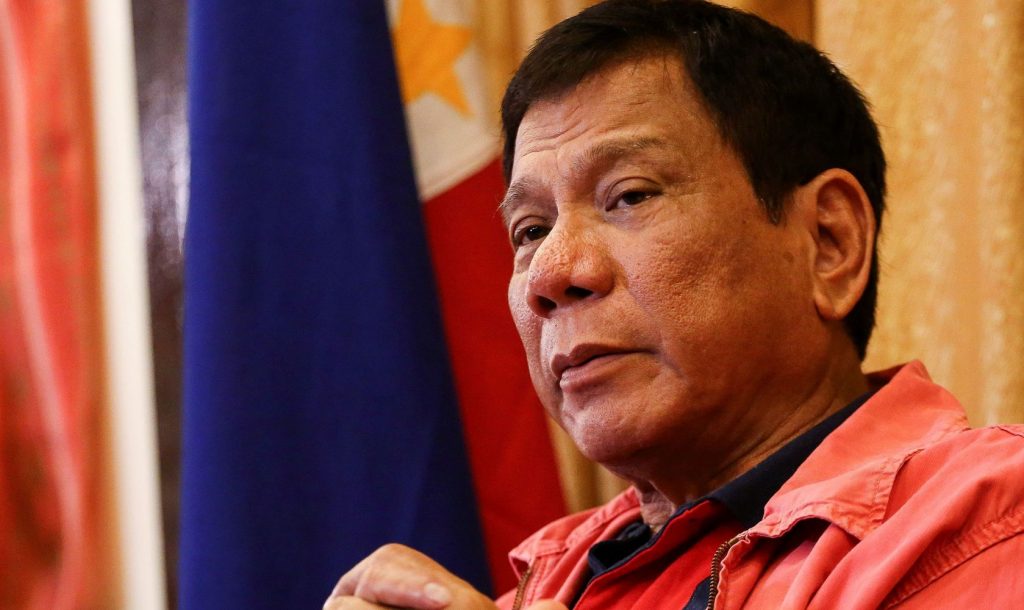Is the Philippines heading towards developmental authoritarianism?
This May, tough-talking and controversial former mayor of Davao City, Rodrigo Duterte, romped to victory in the Philippines presidential elections.
Before his win, Duterte had promised to eradicate the Philippines’ endemic crime and corruption, one of the highest in Asia, within 60 days. Now he is making good on his campaign claim by waging a bloody anti-drug war in a country where a big chunk of the population lives in poverty.
The spate of extra-judicial killings, which Philippines media now number as more than 1,200, since he assumed the presidency in July has divided the nation. It has also generated condemnation from within and outside the Philippines, including the United Nations and human rights bodies.
Despite tumultuous political developments, since it toppled the Marcos dictatorship in the People Power revolution of 1986 the Philippines has emerged as a bright spot for democracy in Asia. It has also delivered impressive economic development averaging six per cent GDP growth each year. However, it should be noted that the rule of law still lags behind the country’s democratic development.
The past government of President Benigno Aquino Jr also concluded peace negotiations with the biggest Muslim insurgency group, the Moro Islamic Liberation Front, which has been waging an insurgency in Mindanao since 1969. The international community has widely supported the peace deal. Can these developments be sustained under Duterte?
The charismatic ‘President Rody’, as he is called by many Filipinos, appears to be an enigma, however. Whether Duterte’s first 100 days are a prelude to entrenching an authoritarian regime is a key question for both academics and observers. His rule also represents a paradox.
Duterte’s brutal policy on drugs is incomprehensible if compared to his other governance and policy reforms. For example, he has appointed diverse and highly qualified ministerial personnel from all political spectrum, the academe, and the private sector.
The new president also signed the freedom of information directive to the executive department that had eluded past administrations. Duterte is seeking a more comprehensive peace settlement with communist rebels and other Muslim insurgent groups.
Duterte’s administration is also going after ‘oligarchs’ who have interfered or manipulated Philippine politics, the big tax cheats, and recently an over-blown bureaucracy teeming with political appointees.
Newly-elected members of the Philippine Congress are looking into a federal system of government. The President has also shown restraint in dealing with China even after the Philippines’ win in the arbitration tribunal on the South China Sea issue.
Beyond Duterte’s war on drugs, domestic and foreign businesses are applauding the administration’s comprehensive economic agenda. Expansion of businesses and faster growth are expected under the ‘iron watch’ of the President.
How do we assess the new Philippine presidency and how will his policy directions affect the country’s political and economic fortunes? What does it mean for democracies’ future in the Philippines and the region?
And after 70 years of bilateral ties, how can Australian engage constructively with the Duterte administration in fostering values of democracy, the rule of law, inclusive growth, and the promotion of peace and stability in Asia?
These are all crucial issues, and each will be examined by experts, academics, and policy makers in the two-day Philippine Update conference taking place at the Australian National University on 2-3 September.
Bringing together experts from around the world, the conference will take stock of political, economic and social developments of the previous administration and the Philippines’ prospects under Rodrigo Duterte.
And for good reason – the paradox of Rodrigo Duterte may be one of the most important puzzles the Philippines, the region, and Australia need to solve in coming years.
Dr Imelda Deinla is a Postdoctoral Research Fellow at the School of Regulation and Global Governance, the Australian National University, and co-convenor of the 2016 Philippine Update taking place 2-3 September.
 Facebook
Facebook  Twitter
Twitter  Soundcloud
Soundcloud  Youtube
Youtube  Rss
Rss 